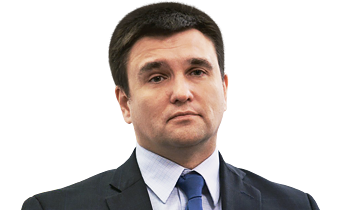On March 3, while in Poland, I visited the village of Pawlokoma, where along with hundreds of Ukrainians I honored the memory of 366 Ukrainian peasants who were on this day in 1945 brutally slaughtered by a unit of Polish Armia Krajowa.
Meanwhile, March 10 marks another tragic anniversary. In 1944, units of the Armia Krajowa along with Bataliony Chlopskie [Polish Farmers' Battalions] under the command of Stanislav Basaj slew residents of the Ukrainian village of Sagryn and several smaller settlements in the area. The death toll makes this crime even more horrendous than that committed in Pawlokoma. According to various estimates, some 800 to 1,300 Ukrainians were murdered, with 70% of them women and children.
There is no way anyone could claim any tactical reasons for attacking Sagryn. There were 20 policemen there recruited by the German occupation administration from the local population. It is clear that they were of no threat to Armia Krajowa. So, the only purpose of the punitive action was ethnic cleansing, physical destruction of the Ukrainian population.
There is nothing simpler and more logical than accepting these obvious facts, to agree that the mutual massacre of the 1940s is truly a huge tragedy, our common tragedy
These facts do not fit into the new historical concept of Poland's ruling political elite, branding the Ukrainian Insurgent Army [UPA] a criminal organization, at the same time retaining a clean and immaculate image of Armia Krajowa. Reality decries such approach. Unfortunately, there were war criminals on both sides, while both Poles and Ukrainians fell victim to mass killings.
I believe there is nothing simpler and more logical than accepting these obvious facts, to agree that the mutual massacre of the 1940s is truly a huge tragedy, our common tragedy. At the same time, such recognition is also the only way toward a Ukrainian-Polish reconciliation. We have no right to hurdle the burden of guilt onto either single side, generally blaming the whole nation and national liberation movements. We must come together to condemn the crimes committed by specific culprits, we must remember and honor our dead, together. The task of political and intellectual elites is to make sure that mourning innocent victims unites Ukrainians and Poles rather than separates them.
In saying this, I reveal nothing new. After all, just a few years ago, Ukraine and Poland were moving precisely along this path of mutual remission and reconciliation. Our partnership and sincere friendship could be considered a model for the whole Europe.
In order to preserve and develop our reconciliation, we must pursue the most honest, frank, and critical dialogue
Back in 1994, our governments entered into an Agreement to preserve the sites were victims of war and political repression are buried. According to the Agreement, a memorial to victims of mass murder was erected in Sagryn in 2008. It was envisaged that it would soon be opened by presidents of the two countries. The ceremony was repeatedly delayed for various reasons, agreements were reached on new terms, but 10 years have already passed, while the memorial is still yet to be opened officially.
Like most Ukrainians, I find it very painful to see how the sharp U-turn of Polish leaders in their historical policies has changed the atmosphere of our partnership. I just fail to understand why our sincere reconciliation has to be brought to naught and why it is being done at the time when Russia's aggressive policy threatens the future of both Ukraine and Poland, and the entire European Union.
In order to preserve and develop our reconciliation, we must pursue the most honest, frank, and critical dialogue. Nobody says that it will be simple and that we will all come to the same assessment. But we have to learn to respect each other's opinion and to come to terms with the fact that our partners see certain events of the past from their own perspective. We must also understand that attempts to impose onto others own vision of history as ultimate truth and to dictate whom to consider national heroes or not are counterproductive, to say the least.
In a recent article devoted to Ukrainian-Polish relations, I have already stated that I am ready to take responsibility for returning our relations in a normal and civilized European direction. Once again, I call on the Polish side to enter into an open dialogue and show will to understand each other.
Let us remember the testament of St. John Paul II: "Let's forgive and ask for forgiveness!"
In 2009, Polish president Lech Kaczynski made a great statement: "Historical recollections cannot relieve us of our thoughts about the present. Let us seek courage and mercy in ourselves to appeal to God with our best prayer: 'Forgive us our trespasses as we forgive them who trespass against us'." It's a shame that these words have not been heard for the past several years.
Let us finally open the memorial in Sagryn and together return to the path of historical reconciliation.
Pavlo Klimkin is a Minister for Foreign Affairs of Ukraine


